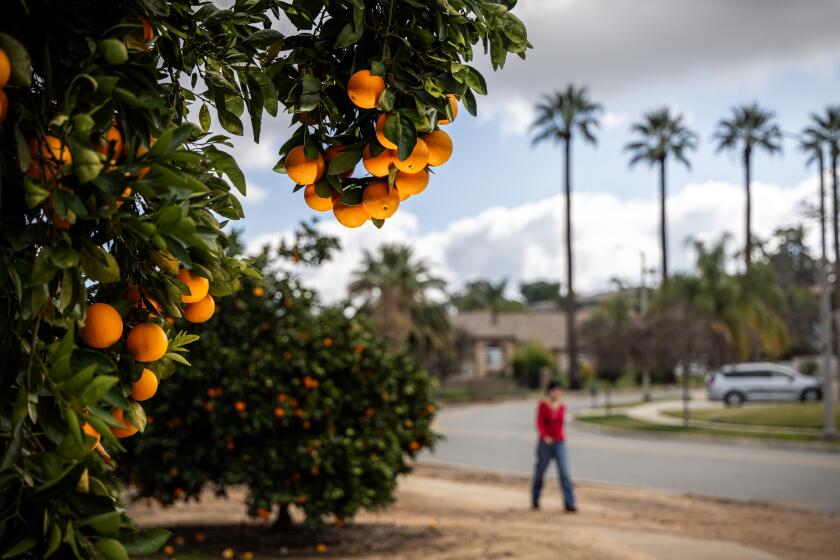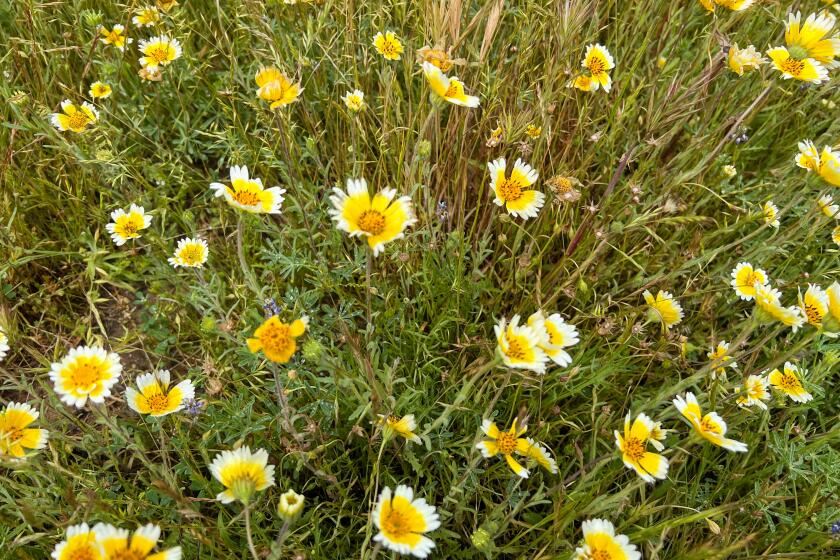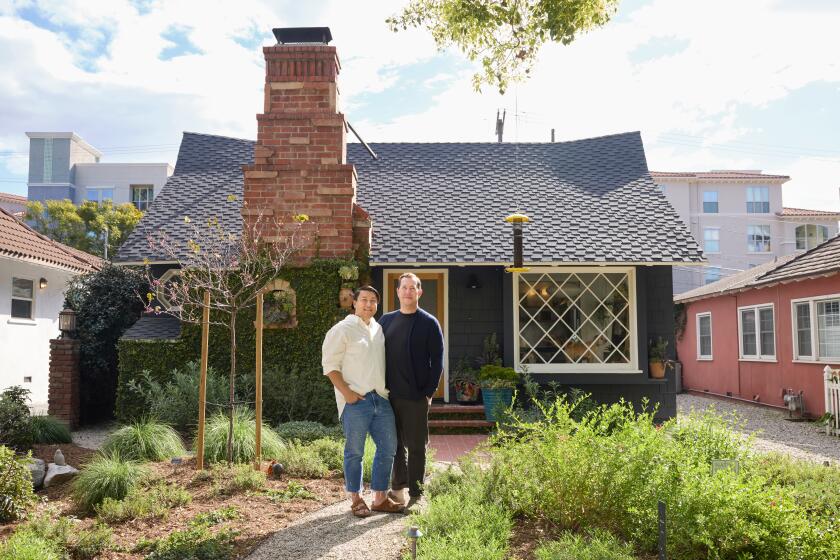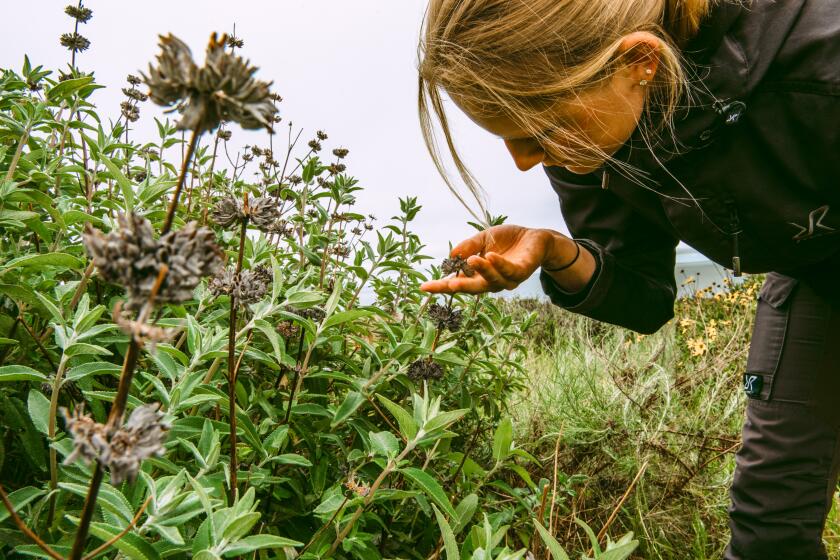Caltech goes green with Olive Harvest Festival
Caltech established its sustainability credibility by building Pasadena’s largest solar-power facility on one of its parking lots and operating a thriving campus recycling center, the sorts of initiatives that are common across the nation’s campuses. But the university’s most original green venture is its annual Olive Harvest Festival.
A sidewalk that for years was smeared with rotten produce from the campus’ 130 olive trees today will fill with students, faculty and volunteers who gather annually to harvest the savory fruit. The olives are picked by hand, then pressed into oil that will be sold in the Caltech bookstore in about a month.
Members of the public are welcome to participate.
Here’s a schedule of some of the events. A complete list can be found at olives.caltech.edu.
8 a.m. to 3 p.m.: Harvest olives by hand.
10:30 a.m. to 4 p.m.: Ten people will push a 1,600-pound wheel to manually press oil.
11:30 a.m. to 4 p.m.: Tastings and sustainability exhibits by student clubs.
Noon to 4 p.m.: “Green” tour of campus.
-- Margot Roosevelt
Electronics disposal
On Feb. 18, little more than three months from now, your old analog TV may not work well without a converter. Millions of people in the U.S. will be nudged into scrapping their old sets and buying digital. (Check out latimes.com/digitaltv for more about the digital conversion process.)
But before you dump your old television at a landfill -- where its toxic innards, including lead, mercury and cadmium, can contaminate your air and water -- check out the Environmental Protection Agency’s Plug-In To eCycling website, epa.gov/ecycling.
Not only will recycling help the environment, but the plastics, metals and other components in the old TVs can be reused, thus cutting back on greenhouse gases from manufacturing that are disrupting our climate.
Besides factoids, podcasts, a video and a moderate dose of feel-good propaganda, the EPA’s website directs you to local programs to assist you in donating or recycling your old electronics, including old cellphones and computers.
-- Margot Roosevelt
Bird rescue
Getting scooped up from the oily muck didn’t ensure salvation for birds in last year’s San Francisco Bay oil spill. Fewer than 40% of the oil-coated birds rescued made it back into the wild. The state Oiled Wildlife Care Network collected 1,068 live birds and was able to save 418 of them for later release.
The release rate was lower than usual for the network, which typically is able to save 50% to 75% of birds plucked from a spill. In addition, the network collected 965 birds that died of oil-related causes.
In a news release on the eve of the first anniversary of the Nov. 7, 2007, spill, network director Michael Ziccardi said several factors explained the below-average survival rate: Of the 31 bird species affected, some were especially sensitive to stress. The spill also occurred at a time of year when birds tend to be in poor condition.
The injured birds were treated at the network’s regional center in Fairfield, a 12,000-square-foot facility that can care for as many as 1,000 sick birds.
The state-funded network is run by the UC Davis Wildlife Health Center.
The spill occurred when a cargo ship ran into the San Francisco-Oakland Bay Bridge and leaked 53,000 gallons of heavy fuel into the Bay.
-- Bettina Boxall
Gas log fireplaces
Homeowners can get a $125 discount on the price of gas log sets for their fireplaces under a new program aimed at curbing wood smoke pollution.
Under the Healthy Hearths program unveiled Friday by the South Coast Air Quality Management District, buyers can obtain the discount at more than 60 participating retailers in Southern California.
The agency is trying to encourage the conversion of as many as 5,000 wood-burning fireplaces to gas logs. (Find out more about the program at healthyhearths.org.)During the winter, wood burning in the region’s fireplaces and wood stoves sends as much as 10 tons a day of fine particulates into the air.
Wood smoke emissions cause four times more fine particulate air pollution than all the power plants in the region, according to the AQMD.
Earlier this year, the agency’s board adopted regulations that will ban the installation of permanent indoor or outdoor wood-burning fireplaces or stoves in new residential or commercial construction, starting in March.
Starting in the fall of 2011, the rules will also bar wood burning on days of high particulate pollution.
The AQMD will reimburse retailers for $100 of the gas log discount and manufacturers are kicking in the rest.
-- Bettina Boxall






